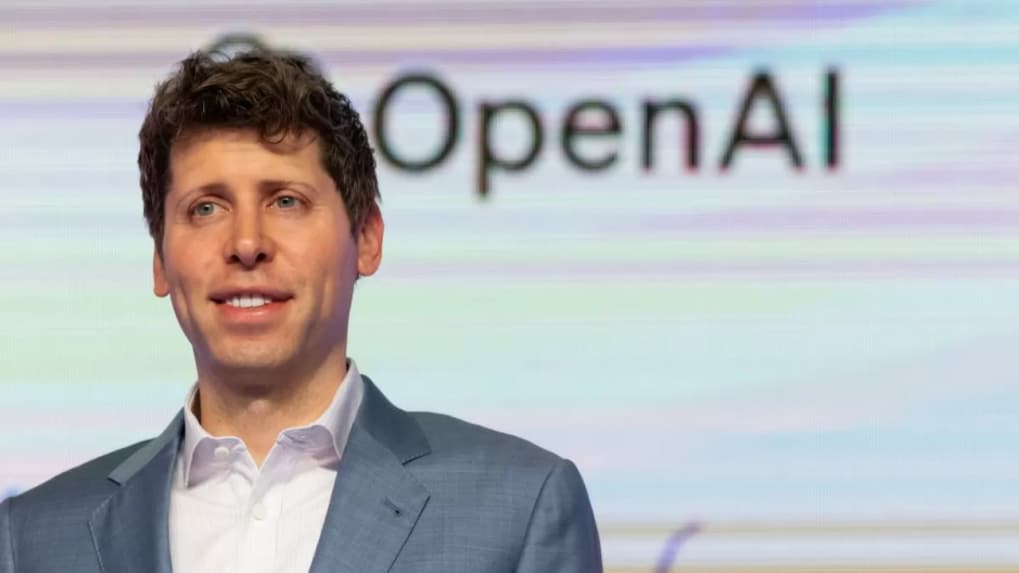Advertising
From Pink Slips to Silent Sidelining: Inside adland’s layoff and anxiety crisis

OpenAI is granting Microsoft a 27 percent stake valued at $135 billion as part of a sweeping corporate overhaul, formalizing one of the most influential partnerships in artificial intelligence and setting the ChatGPT maker on course to operate fully as a for-profit enterprise.
The agreement, announced after nearly a year of negotiations, also ensures Microsoft continued access to OpenAI’s technology through 2032 — including future systems that achieve artificial general intelligence, or AGI, capable of outperforming humans in most economically useful tasks.
OpenAI, founded in 2015 as a nonprofit research lab, has spent much of this year recasting itself as a more traditional business. Microsoft, which has invested about $13.75 billion, was the final major backer to approve the new structure, according to people familiar with the discussions.
“OpenAI has completed its recapitalization, simplifying its corporate structure,” said Bret Taylor, OpenAI’s chairman, in a statement. “The nonprofit remains in control of the for-profit and now has a direct path to major resources before AGI arrives.”
The newly established OpenAI Foundation, the nonprofit parent entity, will receive equity worth about $130 billion and plans to fund initiatives focused on advancing health research and other long-term projects.
Sam Altman, OpenAI’s co-founder and chief executive, will not receive a personal stake in the reorganized company, the company said.
Microsoft shares rose as much as 4.2 percent to $553.72 following the announcement, as the deal removed a lingering source of investor uncertainty over the companies’ complex partnership.
One of the most contentious issues in the negotiations was what would happen once OpenAI achieved AGI. Under the new arrangement, that milestone must be verified by an independent expert panel, and once reached, Microsoft will no longer receive a share of OpenAI’s revenue.
Microsoft also agreed to give up its right of first refusal on OpenAI’s cloud infrastructure business, a shift that allows OpenAI to work with other providers such as Oracle, while still maintaining a deep partnership with Microsoft’s Azure platform. OpenAI also committed an additional $250 billion to Azure services.
The restructuring concludes a turbulent year for OpenAI, marked by regulatory scrutiny and a lawsuit filed by Elon Musk, an early investor who accused the company of straying from its original nonprofit mission.
Under the new agreement, Microsoft’s access to OpenAI’s technology excludes consumer hardware, while OpenAI retains the ability to jointly develop new products with outside partners.
OpenAI x Microsoft
The agreement preserves key elements that have fueled this partnership—meaning OpenAI remains Microsoft’s frontier model partner and Microsoft continues to have exclusive IP rights and Azure API exclusivity until Artificial General Intelligence (AGI).
It also refines and adds new provisions that enable each company to independently continue advancing innovation and growth.
What has evolved:
Once AGI is declared by OpenAI, that declaration will now be verified by an independent expert panel.
Microsoft’s IP rights for both models and products are extended through 2032 and now includes models post-AGI, with appropriate safety guardrails.
Microsoft’s IP rights to research, defined as the confidential methods used in the development of models and systems, will remain until either the expert panel verifies AGI or through 2030, whichever is first. Research IP includes, for example, models intended for internal deployment or research only. Beyond that, research IP does not include model architecture, model weights, inference code, finetuning code, and any IP related to data center hardware and software; and Microsoft retains these non-Research IP rights.
Microsoft’s IP rights now exclude OpenAI’s consumer hardware.
OpenAI can now jointly develop some products with third parties. API products developed with third parties will be exclusive to Azure. Non-API products may be served on any cloud provider.
Microsoft can now independently pursue AGI alone or in partnership with third parties.
If Microsoft uses OpenAI’s IP to develop AGI, prior to AGI being declared, the models will be subject to compute thresholds; those thresholds are significantly larger than the size of systems used to train leading models today. The revenue share agreement remains until the expert panel verifies AGI, though payments will be made over a longer period of time.
OpenAI has contracted to purchase an incremental $250B of Azure services, and Microsoft will no longer have a right of first refusal to be OpenAI’s compute provider.
OpenAI can now provide API access to US government national security customers, regardless of the cloud provider. OpenAI is now able to release open weight models that meet requisite capability criteria.
OpenAI in India
OpenAI is also deepening its presence in India with a new push to expand access to its artificial intelligence tools. Beginning November 4, the company will offer free access to its ChatGPT Go model, a move aimed at capturing a larger share of India’s fast-growing AI user base — now the company’s second-largest market worldwide, according to a statement released by OpenAI.
The initiative echoes recent moves by rivals including Perplexity and Google, which have also rolled out free versions of premium AI products to attract users in India’s competitive and cost-sensitive market. Perplexity made its paid plan free through a partnership with Airtel, while Google granted students one year of complimentary access to its AI Pro membership, typically priced at ₹19,500.
OpenAI introduced ChatGPT Go in India in August as a lower-cost subscription tier priced at ₹399 per month. With the new free version, the company said users will gain access to higher daily message limits, more image generations and uploads, and extended memory designed to enable more personalized and contextual conversations.
From purpose-driven work and narrative-rich brand films to AI-enabled ideas and creator-led collaborations, the awards reflect the full spectrum of modern creativity.
Read MoreLooking ahead to the close of 2025 and into 2026, Sorrell sees technology platforms as the clear winners. He described them as “nation states in their own right”, with market capitalisations that exceed the GDPs of many countries.